Rascals case in brief
In the beginning, in 1989, more than 90 children at the Little Rascals Day Care Center in Edenton, North Carolina, accused a total of 20 adults with 429 instances of sexual abuse over a three-year period. It may have all begun with one parent’s complaint about punishment given her child.
Among the alleged perpetrators: the sheriff and mayor. But prosecutors would charge only Robin Byrum, Darlene Harris, Elizabeth “Betsy” Kelly, Robert “Bob” Kelly, Willard Scott Privott, Shelley Stone and Dawn Wilson – the Edenton 7.
Along with sodomy and beatings, allegations included a baby killed with a handgun, a child being hung upside down from a tree and being set on fire and countless other fantastic incidents involving spaceships, hot air balloons, pirate ships and trained sharks.
By the time prosecutors dropped the last charges in 1997, Little Rascals had become North Carolina’s longest and most costly criminal trial. Prosecutors kept defendants jailed in hopes at least one would turn against their supposed co-conspirators. Remarkably, none did. Another shameful record: Five defendants had to wait longer to face their accusers in court than anyone else in North Carolina history.
Between 1991 and 1997, Ofra Bikel produced three extraordinary episodes on the Little Rascals case for the PBS series “Frontline.” Although “Innocence Lost” did not deter prosecutors, it exposed their tactics and fostered nationwide skepticism and dismay.
With each passing year, the absurdity of the Little Rascals charges has become more obvious. But no admission of error has ever come from prosecutors, police, interviewers or parents. This site is devoted to the issues raised by this case.
On Facebook
Click for earlier Facebook posts archived on this site
Click to go to
Today’s random selection from the Little Rascals Day Care archives….
Click for earlier Facebook posts archived on this site
Click to go to
Today’s random selection from the Little Rascals Day Care archives….
How Bill Hart got better at playing dirty
Dec. 2, 2011
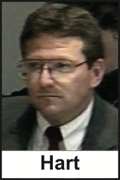 “Videotaped interviews made during the early cases (alleging day care ritual sex abuse) show that when children were allowed to speak freely, either they had nothing to say about abuse or they denied it ever happened to them.
“Videotaped interviews made during the early cases (alleging day care ritual sex abuse) show that when children were allowed to speak freely, either they had nothing to say about abuse or they denied it ever happened to them.
“Once it became obvious that these records would prevent guilty verdicts, prosecutors began advising investigators not to keep tapes or detailed notes of their work.”
– From “Satan’s Silence: Ritual Abuse and the Making of a Modern American Witch Hunt” by Debbie Nathan and Michael Snedeker (1995)
Perhaps the most significant difference in the two largest abuse trials was that McMartin defense attorneys were able to expose to jurors the prosecution therapists’ manipulative interview techniques, while Little Rascals attorneys were stymied by the premeditated unavailability of original documentation.
“After Bob Kelly’s indictment,” according to an article in the ABA Journal, “Bill Hart, a North Carolina deputy attorney general assigned to the case, traveled to Los Angeles to consult with McMartin prosecutors.
“He learned that McMartin jurors had criticized videotapes of therapist Kee McFarlane’s interviews with the children. She asked leading questions and rebuked children who did not tell of abuse….”
Hart could have brought back to North Carolina the lesson that interviewers shouldn’t “(ask) leading questions and (rebuke) children who did not tell of abuse.” Instead, he brought back the lesson that interviewers should leave no evidence of having used exactly those fraudulent techniques.
Oh, those ‘anxious parents, well-meaning child advocates’
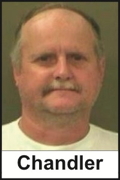 Oct. 10, 2012
Oct. 10, 2012
“This case arose during the height of the Child Sexual Abuse Hysteria of the 1980s and 1990s. The McMartin Preschool case, perhaps the most famous such case, was being tried in California at the same time this case was being tried in North Carolina. The prosecution team in this case was led by two members of the Attorney General’s staff who were to prosecute Robert Kelly four years later in the Little Rascals Day Care case.
“The state’s theory was that Junior Chandler, a bus driver for a county day care, would drive off his route to a parking area next to the French Broad River, strip the clothes off the toddlers, troop the naked children down to the river, put them on a rowboat, proceed to insert various objects into their anuses and vaginas, bring them back to the bus, put their clothes back on and deliver them home.
“This theory was the culmination of an investigation that began when one of the children came home one day and announced to her mother ‘we’ve been f***ing.’ Prior to that, there had been no indication of any problems with the children, the day care or Junior. However, fueled by the concern of anxious parents and well-meaning child advocates, this comment morphed into bizarre allegations of widespread sadistic abuse at the hands of several adults, including Junior….”
“Junior Chandler is serving his 26th year in prison, based largely on incredible claims from preschoolers, as elaborated upon and vouched for by six prosecution witnesses. Many defendants in this state have been awarded new trials for far less damaging testimony. Most of the victims of the Child Sexual Abuse Hysteria from around the country, Virginia McMartin, Kelly Michaels, Dale Akiki, Bob Kelly, the Amiraults, etc., have regained their freedom…. Junior Chandler deserves the same relief.”
– From Junior Chandler’s amended petition for writ of certiorari, denied last week by the North Carolina Supreme Court
Building a better mousetrap? Not exactly….
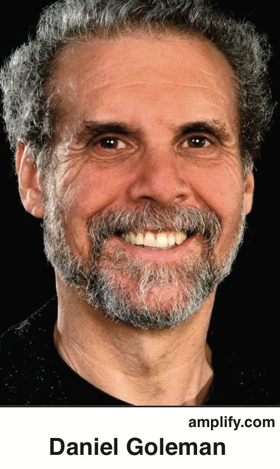 Aug. 24, 2014
Aug. 24, 2014
“The following dialogue is from Daniel Goleman’s article ‘Studies Reflect Suggestibility of Very Young as Witnesses,’ in the New York Times (June 11, 1993). It is an excerpt from 11 interviews of a four-year-old boy, who each week was told falsely: ‘You went to the hospital because your finger got caught in a mousetrap. Did this ever happen to you?’
“First Interview: ‘No. I’ve never been to the hospital.’
“Second Interview: ‘Yes. I cried.’
“Third Interview: ‘Yes. My mom went to the hospital with me.’
“Fourth Interview: ‘Yes. I remember. It felt like a cut.’
“Fifth Interview: ‘Yes.’ (Pointing to index finger….)
“Eleventh Interview: ‘Uh huh. My daddy, mommy, and my brother (took me to the hospital) in our van…. The hospital gave me . . . a little bandage, and it was right here’ (pointing to index finger).
“The interviewer then asked: ‘How did it happen?’
“ ‘I was looking and then I didn’t see what I was doing and it (finger) got in there somehow…. The mousetrap was in our house because there’s a mouse in our house…. The mousetrap is down in the basement next to the firewood…. I was playing a game called “Operation” and then I went downstairs and said to Dad, “I want to eat lunch” and then it got stuck in the mousetrap…. My daddy was down in the basement collecting firewood…. (My brother) pushed me into the mousetrap…. It happened yesterday. The mouse was in my house yesterday. I caught my finger in it yesterday. I went to the hospital yesterday.’ “
– From “Case Study of Implanted Memory” by Martin Gardner in Skeptical Inquirer (Fall 1994)
Does this experiment’s series of 11 interviews strike you as extreme? For at least one of the Little Rascals children, Judith Abbott, lead therapist for the prosecution, conducted biweekly sessions for six months!
‘You don’t just brush off 24 years of a man’s life’
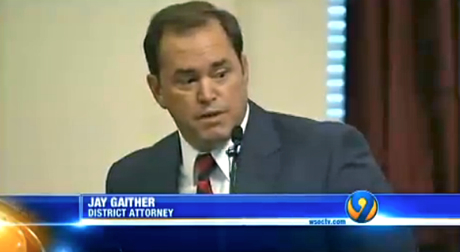 Oct. 12, 2012
Oct. 12, 2012
The exoneration of Willie Grimes warms my heart, and not just because the 66-year-old parolee has become “Free at last!” after a 1987 rape conviction in Hickory.
As often lamented on this site, prosecutors such as those in the Little Rascals case simply refuse to acknowledge, much less take responsibility for their mistakes.
In the Grimes case, however, District Attorney Jay Gaither told the Innocence Inquiry Commission panel, “The State cannot argue any conclusion other than for innocence in the case of Willie Grimes,” then rested the state’s case and sat down.
Afterward, he explained that “In this week’s presentation of evidence we counted no less than 35 pieces of evidence and testimony in support of innocence…. The fact that the three-judge panel was so emphatic in its conclusion and decision only strengthens the confidence I have in our decision.”
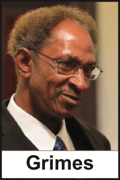 But Gaither went even further, on camera and rebroadcast by WSOC-TV: “On behalf of the district attorneys of North Carolina, I want to offer an apology to Willie Grimes.”
But Gaither went even further, on camera and rebroadcast by WSOC-TV: “On behalf of the district attorneys of North Carolina, I want to offer an apology to Willie Grimes.”
Yes – an apology!
Although the Grimes conviction occurred long before Gaither took office in 2002, DAs often feel compelled to defend even their predecessors’ performance. As former New York prosecutor Bennett Gershman has observed, “The prosecutor can’t do anything that undermines the public’s confidence in the prosecutor’s office. Once the public begins to doubt that prosecutors convict guilty people – that there may be mistakes in the system – that undermines confidence in the prosecutor….”
Gaither took the opposite approach. “You don’t just brush off 24 years of a man’s life and go on,” he told me Wednesday. “A series of events denied Mr. Grimes a fair trial. Closure was required.
“I wanted the public, as well as Mr. Grimes, to know that we weren’t just beat down, but that we were actually sorry.” (Click Gaither’s picture above to watch the broadcast that includes video of the courtroom apology.)
Also notable is how Gaither framed his apology: “I was speaking not so much for district attorneys as individuals, as for the State of North Carolina…. Only 44 of us have that right to say ‘The state says….’ ”
In this case, that right was admirably used. Would that it happened more often.











0 CommentsComment on Facebook